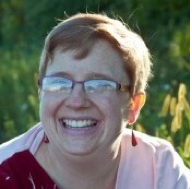You don’t have to give until it hurts. In fact, it’s better if you don’t.
This can be a tough time of year for the majority of Judeo-Christian-identified nations.
Yes, there are celebrations: cookies, family, time together. Yet, there are also myriad triggers and struggles, darknesses and depressions. For many countries, this time of year is highest in suicides.
I find the intensity of well-wishers to be overwhelming. People who insist that if I were only grateful, I’d feel better (implying I am not grateful and that’s why I feel bad). People who tell me to give “until it hurts.” The number of messages from capitalism/materialism increase many fold, under the pretenses of generosity and giving, but with the same, relatively secret underlying message:
I am not worthy. I am not doing enough.
This time of year, I practice an increased amount of Tonglen, the Four Reminders, and Loving Kindness (Metta/Maitri).
I do it in a store, listening to a child cry for a toy they can’t have, thinking of friends who are grieving a loss for the first time that year because the holidays are appearing. Especially, when I find myself suffering—triggered by overly cheerful Christmas songs into a state of gross irritation, frustrated by my own lack of funds or confusion about gift giving—I reach for these practices to help expand my heart. This is not the same as opening my pocketbook (a different sort of generosity), but important in its own way.
While it is important to recognize my own needs and take time to myself if coworker/family/friend time is overloading, it’s also crucial that I recognize that “I” don’t exist, not as I think I do.
None of us are ever separate entities—all the food we (hopefully) eat, the heat that (hopefully) keeps us warm, the houses or shelters we (hopefully) occupy—all of these came about, continuously come about, because of many millenia of interdependent beings.
There is no self-made person.
Over time I have found it the best comfort to remind myself, through these practices, that I am not alone.
Ironically, especially when what I really want is to be alone—away from humans who provoke me: endless pleas for donations that trigger my poverty mentality, in the middle of full-tilt overplayed family holiday scenes—these practices remind me that, deep down, none of us are ever truly alone.
This fundamentally also helps heal the message that there is something wrong with me because I am suffering.
There isn’t. I am human.
Suffering is part of what we do. If we give because we think we aren’t enough, it isn’t the right motivation.
These practices are powerful because they can be done on-the-spot. They are, in fact, best done in situ. While standing in line at the grocery store, feeling impatience arise as an older woman in front of me struggles with her checkbook. On the street corner waiting for a light, worrying about being late for an appointment.
Most people, whether they celebrate or not, are on high alarm this time of year. The more gently we can recall that, especially for ourselves, and soften our hearts, the more we can survive this potentially dark time and make space for true compassion.
At first it can feel like too much: why would I take on more pain when I have enough?
But over time, even if we have to fake it until we make it, even if we spend the majority of our Tonglen time returning to give compassion to our own struggle with the practice, we start to feel the walls between you and me fade and recognize it as a natural, beneficial thing.
This is not the same thing as having no boundaries –we all know we need those, especially this time of year—it is an underlying belief change that helps us to see others less as enemies, as provokers.
Instead, we remind ourselves that everyone, absolutely everyone, is suffering.
Suffering comes from confusion, and the most fundamental confusion of all is that we are somehow fundamentally isolated from each other.
Once we begin to glimpse the truth of our interdependence, generosity, gratitude and naturally-arising compassion will all begin to flow. Gently. It is then that we find our capability to be with our pain—and our joy—as well as the pain and joy of so many other billions of beings on this floating blue globe we call home.
Without having to force it, without having to give until it hurts, we can see the right time. We can know the best situations, use our own natural wisdom, to not give when we can’t, and be grateful when we can.
PS. It’s not too late to sign up (November 26th is the last day) for Marianne Elliot’s wonderfully helpful Zen Peacekeeper Guide to the Holidays.
Want 15 free additional reads weekly, just our best?
Get our weekly newsletter.
Editor: Catherine Monkman
{Photo: Flickr.}

 Share on bsky
Share on bsky




Read 2 comments and reply